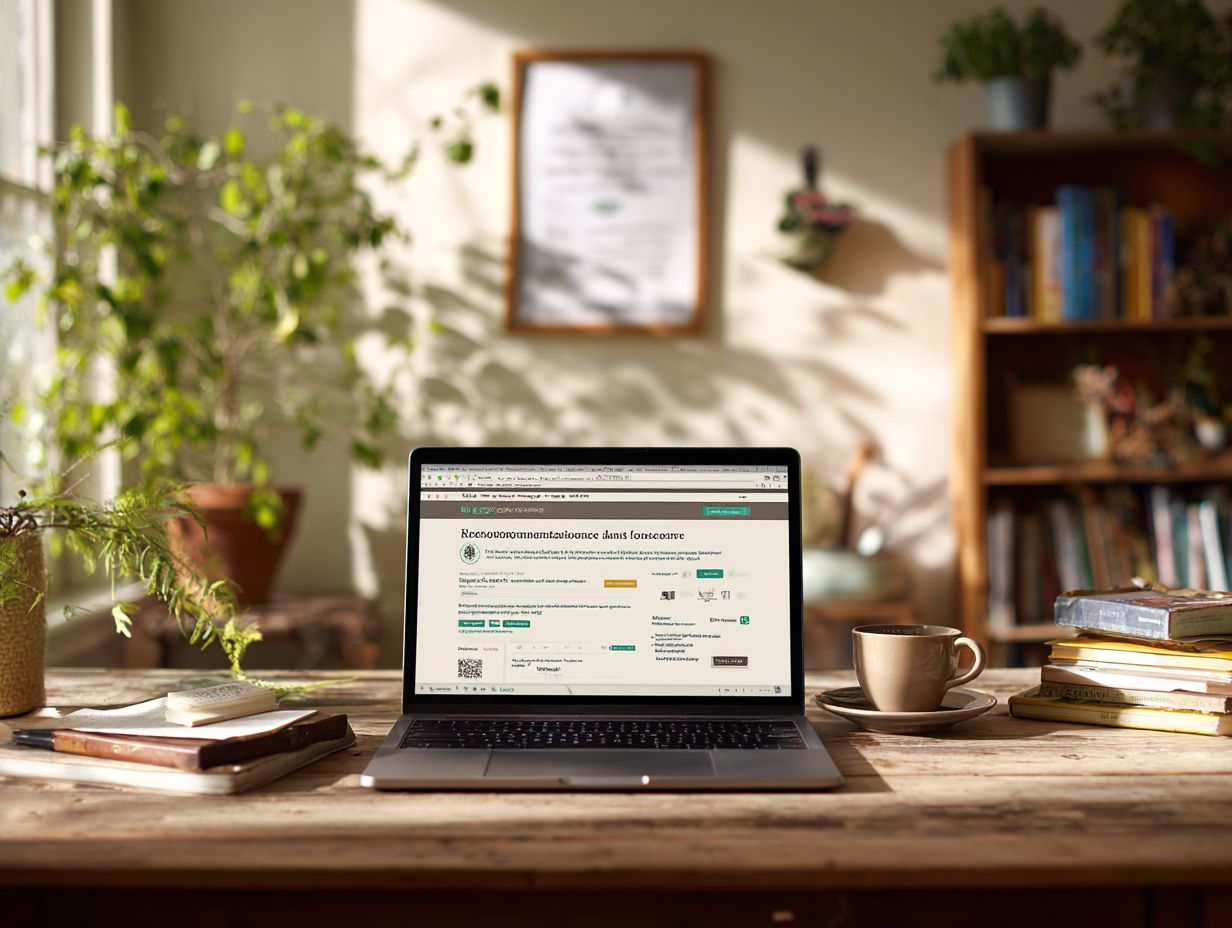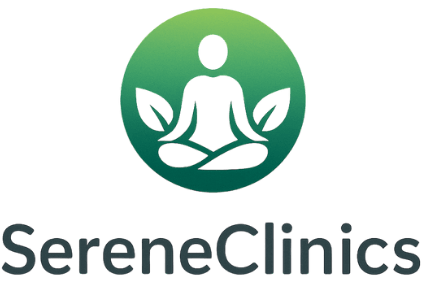Guide to Licensing for Homeopathic Practitioners
Knowing the rules and regulations for getting a license as a homeopathic practitioner is important to stay within the law and keep professional credibility. In the field of Complementary and Alternative Medicine (CAM), learning about the regulatory steps can be challenging. This guide explains what CAM practitioners, like homeopaths and chiropractors, need to get certified. It also covers how to keep your license active and handle usual problems. Equip yourself with the knowledge to thrive in your practice!
Key Takeaways:
Contents
- 1 Understanding Licensing Requirements
- 2 Homeopathic Licensing Statistics
- 3 Educational Requirements
- 4 Application Process for Licensure
- 5 Examinations and Assessments
- 6 Maintaining Your License
- 7 Challenges in Licensing
- 8 Frequently Asked Questions
- 8.1 What is a guide to licensing for homeopathic practitioners?
- 8.2 Why is licensing necessary for homeopathic practitioners?
- 8.3 What are the basic requirements for obtaining a license to practice homeopathy?
- 8.4 Is a license to practice homeopathy the same as a medical license?
- 8.5 Do all countries/states have a licensing process for homeopathic practitioners?
- 8.6 Can I still practice homeopathy without a license?
Definition and Principles of Homeopathy

Homeopathy operates on the premise that the body can heal itself when provided with the right stimuli, typically through the administration of minute doses of natural substances.
Central to homeopathy are the Law of Similars and the Law of Infinitesimals.
The Law of Similars suggests that substances causing symptoms in healthy individuals can treat similar symptoms in the sick. For instance, if a person experiences a headache from consuming too much caffeine, caffeine itself in a diluted form may be used to treat that headache.
The Law of Infinitesimals states that the more a remedy is diluted, the more potent it becomes, a concept that sets homeopathy apart from conventional medicine, which often relies on larger doses of active ingredients. To delve deeper into these foundational concepts, learn more about the principles and practices of homeopathy, which are further examined by clinical evidence from the NHS England, highlighting the unique aspects of homeopathic practices ( Clinical evidence for homeopathy).
Importance of Licensing for Practitioners
Licensing makes sure that homeopathy practitioners follow set safety and ethical guidelines, which keeps patients safe and upholds professional honesty.
This process is overseen by organizations like the Council for Homeopathic Certification (CHC), which sets the educational and ethical benchmarks for practitioners. They need to finish thorough tests and follow strict rules to make sure practitioners are prepared. The CHC Certification Handbook elaborates on these standards in detail.
These organizations offer resources for patient safety, such as verifying practitioner credentials online. Patients interested in homeopathic services ought to verify a practitioner’s certification through the CHC or similar organizations. This helps build trust and guarantees care from qualified professionals.
Understanding Licensing Requirements
Knowing the rules for homeopathy licenses can be tricky because they vary by state and national organizations. For a deeper understanding, explore our detailed guide on homeopathy principles and practices.
Overview of Licensing Bodies
Various key organizations manage the licensing of homeopathy practitioners, including the Accreditation Commission for Homeopathic Education and state-specific boards.
These organizations make sure that practitioners have the required education and follow ethical rules.
The Council for Homeopathic Certification (CHC) offers a certification process that requires candidates to complete a designated curriculum and pass an exam, affirming their competence.
State boards have different requirements. In California, you must pass a board exam to get a license, but in New York, you need to keep up with ongoing education.
These rules maintain high standards in homeopathy, keep patients safe, and raise the profession’s reputation.
Homeopathic Licensing Statistics
Homeopathic Licensing Statistics
Homeopathy Usage Statistics: Homeopathy Users
Homeopathy Usage Statistics: Regulation and Licensing
Homeopathic Licensing Statistics offers information about how common homeopathy is and the rules surrounding it in different areas. This information shows how homeopathy is used and accepted as an alternative medical practice. It also discusses the rules and licensing that allow it to be practiced.
Homeopathy Usage Statistics reveal notable trends across different demographics and countries. In the United States, 5 million adults and 1 million children used homeopathy in 2012, indicating a significant interest in alternative medicine. In Europe, homeopathy sees varied acceptance: 11.5% of German adults and a striking 77% of the French population used homeopathy by 2018, reflecting cultural differences and acceptance levels. Interestingly, in 1991, 37% of UK general practitioners included homeopathy, showing historical integration within conventional medicine in the UK.
- Regulation and Licensing: Regulations for homeopathy in the USA are minimal, with only 3 states having homeopathic licensing boards. However, 15 naturopathic boards include homeopathy exams, indicating a broader acceptance within naturopathic medicine. The UK’s NHS prescriptions for homeopathy are exceptionally low at 0.001%, reflecting the skepticism and regulatory challenges homeopathy faces within conventional health systems.
This data highlights the disparity in homeopathy usage between different countries and the varied regulatory approaches. While countries like France show high acceptance rates, the USA and UK exhibit more conservative regulatory environments, limiting widespread adoption within conventional medical practices.
The Homeopathic Licensing Statistics Highlight the importance of knowing cultural and regulatory factors when examining homeopathy’s place in healthcare systems. The data shows that while there is interest in alternative medicine, there are obstacles to getting it widely accepted and included in organized healthcare systems.
State vs. National Regulations
The rules for homeopathy differ widely across states, with some states having strict licensing laws and others having more relaxed rules.
For instance, Arizona’s Homeopathic Medical Board requires practitioners to hold a specific license, ensuring standardized training and practice. In contrast, states like California allow homeopathic practitioners to operate without a formal state licensing, provided they disclose their qualifications.
This disparity affects practitioner mobility; those licensed in less stringent states may face challenges when relocating to more regulated areas. Knowing these differences is important for homeopaths who want to work in different states, particularly regarding initial training and keeping their certification updated.
Types of Licenses Available

In the field of homeopathy, practitioners can obtain various licenses, including Certified Homeopathic Practitioner and state-specific health professions licenses.
The Certified Homeopathic Practitioner (CHP) license typically requires completion of a recognized homeopathy program and passing a national exam. In contrast, state-specific health professions licenses may mandate additional prerequisites such as a degree in a related field or supervised clinical hours.
For example, a practitioner in California may need a chiropractic or naturopath degree to practice homeopathy legally. Knowing these requirements helps practitioners match their training to their career objectives, follow local rules, and build client confidence.
Educational Requirements
People who want to become homeopaths must finish certain accredited educational programs to get a license. For those interested in a broader scope of holistic health careers, it’s worth exploring: How to Become a Naturopathic Doctor: Career Path and Education to understand different educational paths and licensing requirements.
Accredited Homeopathy Programs
Various accredited homeopathy courses, approved by the Accreditation Commission for Homeopathic Education, offer thorough training and necessary information.
Programs like the National University of Natural Medicine (NUNM) offer a four-year Doctor of Naturopathic Medicine degree with a specialization in homeopathy, costing around $20,000 annually.
The American College of Healthcare Sciences provides a 24-month online diploma program for about $10,500, focusing on practical application in clinical settings.
The Canadian College of Naturopathic Medicine includes a homeopathy curriculum within its four-year program, with tuition around $19,000 yearly.
Each program focuses on various parts of homeopathy, so it’s important to look into the courses offered to find one that fits your career goals.
Continuing Education Requirements
To keep their licenses, homeopathy practitioners must take part in ongoing education, usually for 20-30 hours each year, depending on their state.
Professionals can improve their skills by attending different well-known courses and workshops.
For instance, the National Center for Homeopathy offers online webinars that cover topics like advanced case management and herbal integration.
The American Institute of Homeopathy holds a yearly meeting that offers useful chances to meet others and gain knowledge.
Think about signing up for courses that match your specific interests. For example, the College of Homeopathy offers certifications in clinical practice.
These options meet CE requirements, improve knowledge, and provide better patient care.
Application Process for Licensure
Getting a homeopathy license involves a specific process that needs thorough preparation and focus on details.
Gathering Required Documentation
The first part of applying for a license involves collecting important documents, such as school transcripts, evidence of clinical experience, and recommendation letters.
To arrange these documents properly, make a list specific to your state’s rules, as they can vary.
For instance, New York may require a detailed clinical hour log, while California might need specific forms verifying your training program.
Use digital tools like Google Drive to save and sort each document. This method lets you easily locate and distribute all necessary items during the application steps, allowing you to meet deadlines without having to hurry to collect papers at the last moment.
Submitting Your Application
To apply for a license, carefully follow your state’s licensing board rules to prevent any hold-ups.
Start by gathering all required documents, such as proof of education, work experience, and identification.
Most states allow you to send documents online through the licensing board’s website, simplifying the process. After filling out the online form, double-check for accuracy before submitting.
Avoid common pitfalls like incomplete applications or missing signatures, which can cause significant delays. If mailing your application, opt for certified mail to track its delivery.
Always keep copies of all submitted materials for your records.
Application Fees and Processing Times
Application fees for a homeopathy license can cost between $100 and $500, and it might take anywhere from a few weeks to several months to process.
In New York, for example, the initial application fee is $300 with a processing time of 8-12 weeks. In contrast, California charges $250, but applicants should allow up to 6 months for processing.
To budget effectively, set aside funds for potential additional costs such as fingerprinting or exam fees, which can total about $75-$150.
During the waiting period, you might want to connect with local professionals or go to seminars to learn more and remain active in the field.
Examinations and Assessments

Passing the required exams is important for obtaining a license, as it shows that professionals have the required skills to work safely.
Types of Exams Required
Typically, candidates must complete both written and practical exams that cover various aspects of homeopathy, including case analysis and remedy selection.
The written exam, usually administered by organizations like the National Center for Homeopathy, tests knowledge on subjects such as pharmacology, theory, and constitutional types.
The practical exam tests the ability to use this knowledge in real-world situations, by evaluating skills in handling cases and choosing treatments.
Candidates often prepare using resources like ‘The Organon of Medicine’ by Samuel Hahnemann or training courses from institutes such as the Hahnemann College of Homeopathy.
Joining study groups can help you understand and remember the material better.
Preparing for the Licensing Exam
Good preparation for homeopathy licensing exams requires careful study and using resources made for these tests.
- Start with detailed study guides like “The Homeopathic Study Guide” by Godfrey , which explains core ideas clearly.
- Use practice tests from resources such as the National Center for Homeopathy. They have both free and paid options to help you get used to exam formats.
- Think about creating or joining study groups through platforms like Meetup or Facebook, where you can talk about topics and share ideas with classmates.
- Setting aside regular time for studying will improve memory and increase confidence as the exam gets closer.
Maintaining Your License
After obtaining their license, practitioners need to follow certain rules to keep their credentials valid and to comply with current regulations.
Renewal Process
The renewal process typically involves submitting proof of continuing education, with fees ranging from $50 to $200, depending on the state.
Along with the renewal fee, practitioners often need to provide documentation such as completion certificates from accredited courses, a current practice license copy, and sometimes even a background check.
Deadlines vary by state, so check your local requirements to avoid penalties. For example, in California, you have to renew licenses every two years by March 31, while in New York, they must be renewed by December 31.
Make sure you follow these deadlines to keep your license active.
Staying Compliant with Regulations
Practitioners must stay informed about regulatory changes and comply with ethical standards to maintain their licenses and protect patients.
An effective strategy to achieve compliance involves multiple approaches.
- First, subscribe to your relevant regulatory board’s newsletters; these often provide timely updates on changes and upcoming regulations.
- Attending workshops and webinars can be helpful for learning complex subjects. Engaging with professional organizations can also offer resources and networking opportunities.
- Consider setting aside time every three months to review these updates and add them to your tasks. This helps you stay ready for changes rather than just reacting to them.
Challenges in Licensing
While the steps to get a license are simple, homeopathy practitioners still encounter challenges that can hinder their progress.
Common Obstacles for Practitioners
Licensing practitioners often face obstacles such as bureaucratic delays, unclear regulations, and a lack of resources for exam preparation.
To handle these challenges effectively, homeopaths can take some practical actions.
- Join professional associations like the National Center for Homeopathy, which often provide clarity on regulations.
- Create a structured timeline to track application deadlines and required documentation, reducing the chances of delays.
- Use online resources like ExamEdge to find practice tests and study guides designed for homeopathy licensing.
By using these resources, practitioners can simplify their licensing process and improve their readiness.
Advocacy for Better Regulations

Advocating for clearer and more helpful rules is important for the development and recognition of homeopathy as a valid healthcare approach.
Homeopathy practitioners can actively contribute by joining established organizations such as the National Center for Homeopathy or the Homeopathic Medical Association.
Participating in local workshops and community events raises awareness about homeopathy’s benefits. Engaging with legislative bodies to support bills that favor integrative medicine helps create a more favorable regulatory environment.
Letting patients know they have the option to use homeopathic treatments can strengthen the community and encourage approval. Simple actions, like posting success stories on social media or working with health fairs that focus on overall well-being, can greatly improve advocacy efforts.
Future of Homeopathy Licensing
Upcoming changes in homeopathy licensing might include adding telehealth services and increasing acceptance of alternative treatments.
As telehealth gains traction, regulatory bodies might establish online platforms for homeopathy consultations, requiring practitioners to meet specific digital competency standards.
Practitioners might need to use secure video calls with services like Zoom or Doxy.me to protect patient privacy.
As public interest in alternative therapies grows, organizations such as the National Center for Complementary and Integrative Health may advocate for more standardized training and certification programs for homeopaths.
These changes improve professional reliability and focus on patient safety and access.
Frequently Asked Questions
What is a guide to licensing for homeopathic practitioners?
A guide to licensing for homeopathic practitioners is a set of instructions and information that outlines the process and requirements for obtaining a license to practice homeopathy. It helps individuals understand the steps they need to take to become a licensed homeopathic practitioner.
Why is licensing necessary for homeopathic practitioners?
Licensing is important for homeopathic practitioners to confirm they have the needed education, training, and skills to offer safe and effective treatments to their clients. It also helps protect the public from unqualified individuals practicing homeopathy.
What are the basic requirements for obtaining a license to practice homeopathy?
The basic requirements for obtaining a license to practice homeopathy may vary depending on the country or state you reside in. Most often, you need to finish a homeopathy course, pass a licensing test, and keep up with ongoing education.
Is a license to practice homeopathy the same as a medical license?
No, a license to practice homeopathy is not the same as a medical license. Homeopathic practitioners are not medical doctors and do not have the same scope of practice as medical professionals. They specialize in using natural remedies and treatments to promote healing and wellness.
Do all countries/states have a licensing process for homeopathic practitioners?
No, the licensing process for homeopathic practitioners may not be the same in all countries or states. Some may have strict regulations, while others may have no licensing requirements at all. It is important to research and understand the regulations in your specific region.
Can I still practice homeopathy without a license?
In some countries or states, it may be possible to practice homeopathy without a license. However, it’s always suggested to get a license so you have the needed skills and information to give safe and effective treatments to your clients. It also adds credibility and legitimacy to your practice.

Sheetal Sharda has a background in CS. She got an interest in Holistic living back in 2018, and has since started exploring more into Naturapathy, Holistic Living, Yoga, and more. She got inspired to start SereneClinics to help people find reliable centers across the world.





